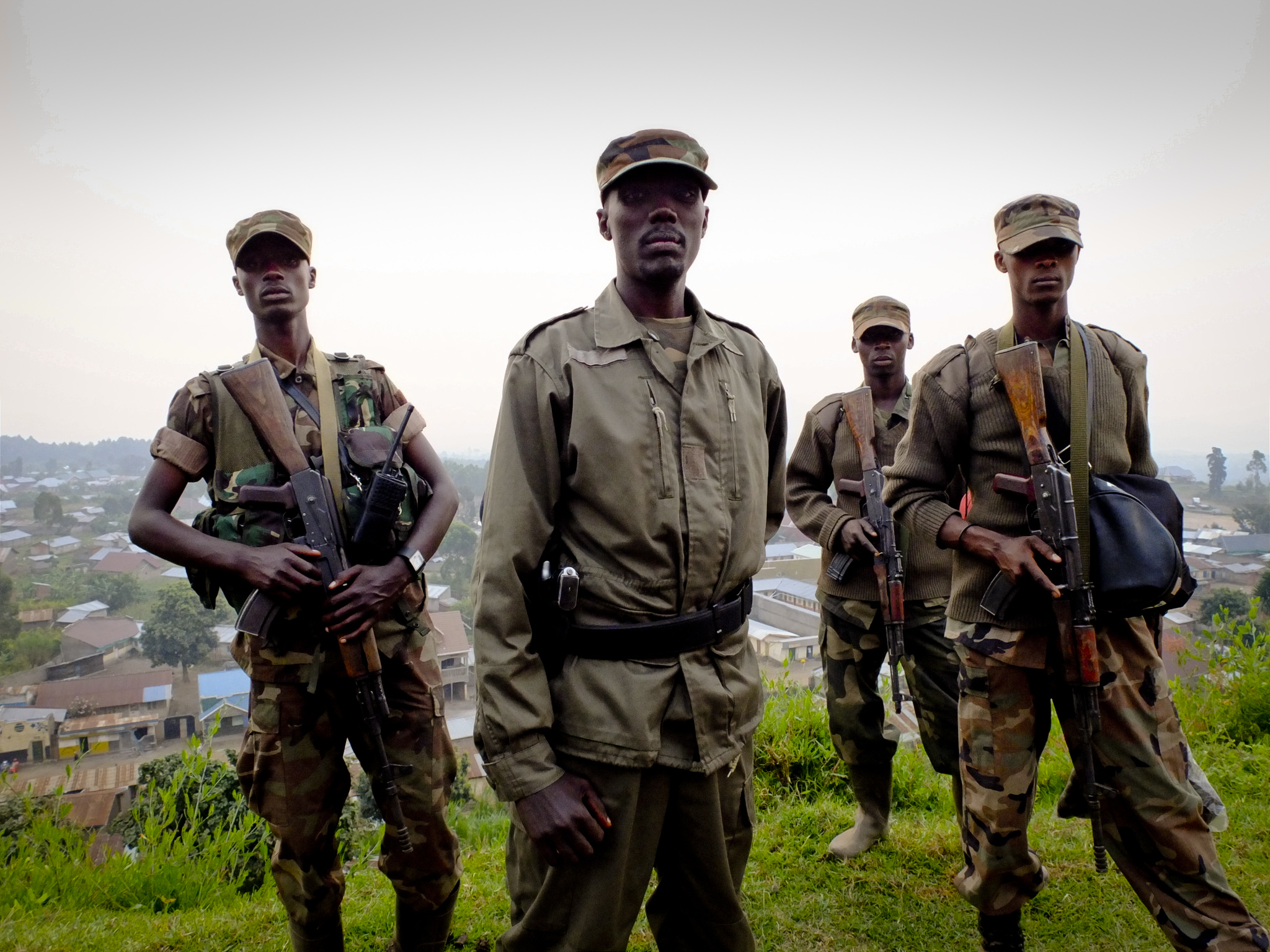
Editor's Note: This op-ed, co-written by Timo Mueller and Christoph Vogel, a Mercator Fellow on International Affairs based in eastern Congo, originally appeared on RealClearWorld.
It was a rainy Sunday afternoon in early April when we called "Brigadier General" Sultani Makenga, the military leader of M23, currently one of the strongest armed groups in eastern Congo. Working as field researchers in the Kivus, we wanted to engage with him face-to-face to capture his take on the DR Congo's state of affairs and learn first-hand about the latest developments inside the rebellion. M23 was consumed by heavy infighting in recent weeks, after latent fractions and fissures between Makenga and his rival Bosco Ntaganda erupted into open and violent conflict. In the ensuing whirlwind of events, Makenga regained the upper hand in late March, and Ntaganda surrendered to the International Criminal Court, leaving many of his men with no choice but to re-defect.
The initial telephone conversation was an unanticipated success. With little hesitation, Makenga agreed to meet us. The ensuing organizational logistics were simple and matter of fact, conducted via text message informing us of his whereabouts north of the provincial capital of Goma. As an individual sanctioned by the United Nations and the United States government, he remained relatively unconcerned and non-clandestine about his location.
Accessing rebel-controlled territory requires preparation. This area had experienced high levels of violent conflict in previous weeks. After interviewing several drivers, we hired an experienced fixer with his own car. Colleagues and security experts consented to our plan. Easter Monday we set off.
A barricade at the northern outskirts of Goma, two kilometers past the airport, was the last demonstration of Congolese state authority before entering M23-held territory — a dozen uniformed men and a thick wooden stick placed across the road. It is symptomatic of the feeble protection that has come to characterize the army's performance in the country's main eastern city. The few state officials that are stationed at the frontlines may offer little resistance if M23 were to decide to retake Goma as they did in November 2012, with the alleged support of Rwanda and Uganda.
As we approached the roadblock, the driver gave us a run-down for easily getting through the barrier. In an extended back-and-forth, he pretended we were tourists eager to explore the nearby volcano that had engulfed the city in lava in 2002. Shortly past the barricade four UN peacekeeping tanks stationed at the side of the road — heavily armed and well protected but venturing little into M23-held territory. They smiled awkwardly and waved us through.
Traffic on the bumpy road was relatively busy in both directions, in stark contrast to a trip to Rutshuru taken in early March, when the population was fleeing toward Goma, balancing what belongings they could carry on their heads. The road was largely absent of M23 soldiers. Along the way we passed small bands of rebels, some wearing their old Congolese army uniforms. Apart from surprised and sometimes confused looks, they paid very little attention to our passage.
The surrounding scenery is very beautiful. Encircled by towering hills and volcanoes, the road led us through lush green pastures. Despite the tragedy associated with the Kivus, nature's charm in this part of the world is captivating and puts in stark contrast the cycles of violence prevalent in the lives of the people who call eastern Congo home.
On the ninety-minute drive, we encountered one major security checkpoint in the small town of Kibumba, roughly 30 km north of Goma. Approximately twenty combatants — some of whom carried RPGs, grenades and other assorted heavy arms — forced us to stop and explain ourselves. One M23 member in particular was very agitated and made our driver step out of the car. Leaning through the window, he asked for our identities, professions and the purpose of our trip. We mentioned the "rendezvous avec le général," allowing us to resume the journey minutes later.
Despite the politico-military events in the region, life in the villages goes on. Markets are bustling and villagers go about their daily activities. Life in complex emergency settings does not necessarily take on the chaos described by the media. Life must continue as a set of daily tasks and relationships within communities regardless of the violence surrounding them. The rebels we saw lingered around, chit-chatting and waiting — a rather peaceful situation that might not necessarily be the case at any time.

